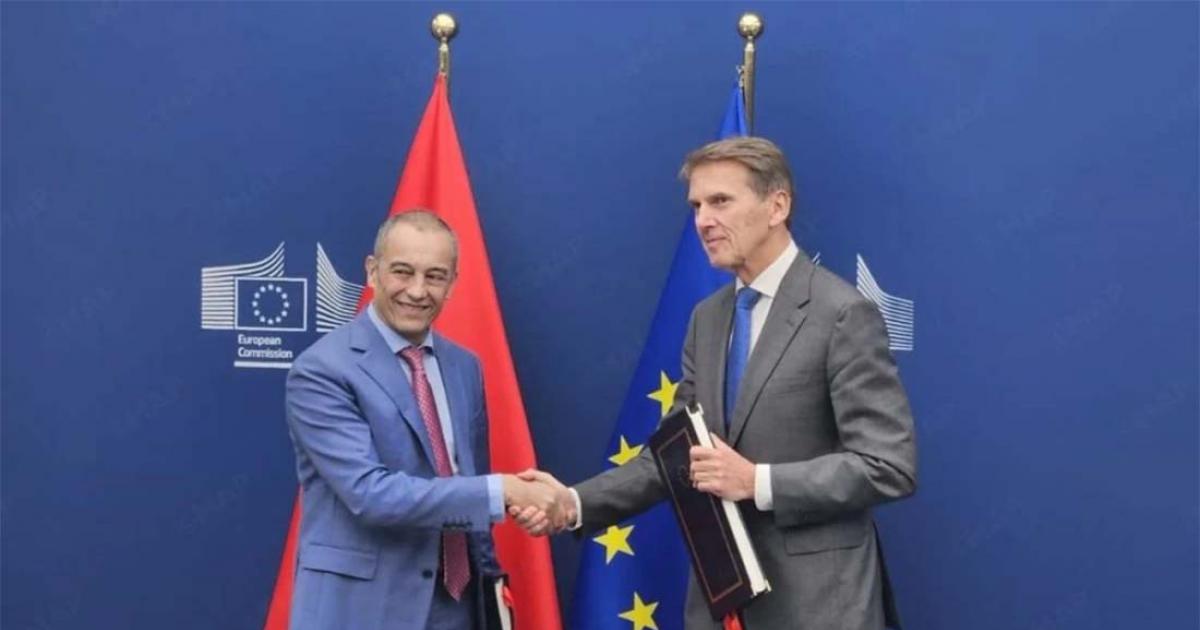
Morocco and the European Union have signed an exchange of letters in Brussels amending their agricultural agreement, a move aimed at reinforcing bilateral trade and recognising the integrated role of the country’s southern provinces.
The agreement, signed by Morocco’s Ambassador to the EU, Ahmed Réda Chami, immediately enters provisional application pending final domestic approvals on both sides.
It guarantees that agricultural products from the Laâyoune-Sakia El Hamra and Dakhla-Oued Eddahab regions enjoy the same preferential access to the European market as products from other parts of Morocco.
“This amendment ensures that agricultural products from southern Morocco are fully integrated into our trade relations with Europe,” officials in Rabat said.
The changes include technical adjustments such as improved labeling indicating the regional origin of products.
These measures aim to enhance transparency for European consumers while promoting goods from the Moroccan Sahara.
The revised agreement builds on the framework established in 2018 and represents a significant step in consolidating Morocco’s economic partnership with the EU.
Rabat remains the EU’s leading economic partner in Africa and the Arab world, with the agreement expected to boost the national agricultural GDP, encourage investment, and support employment in the southern provinces.
For Brussels, the update reflects a broader strategy to strengthen ties in the Mediterranean and across Africa.
EU representatives described the amendment as a “solid and dense” step in cooperation, highlighting the importance of Morocco as a gateway for trade and investment in the region.
Observers note that the move also has symbolic significance, reinforcing Morocco’s sovereignty over its southern territories while integrating them further into international economic frameworks.
By providing producers in these provinces with preferential market access, the agreement is expected to foster local development and greater economic inclusion.
The implementation of this revised framework signals both Rabat and Brussels’ commitment to deepening trade, promoting regional stability, and advancing a more ambitious strategic partnership across multiple sectors.



